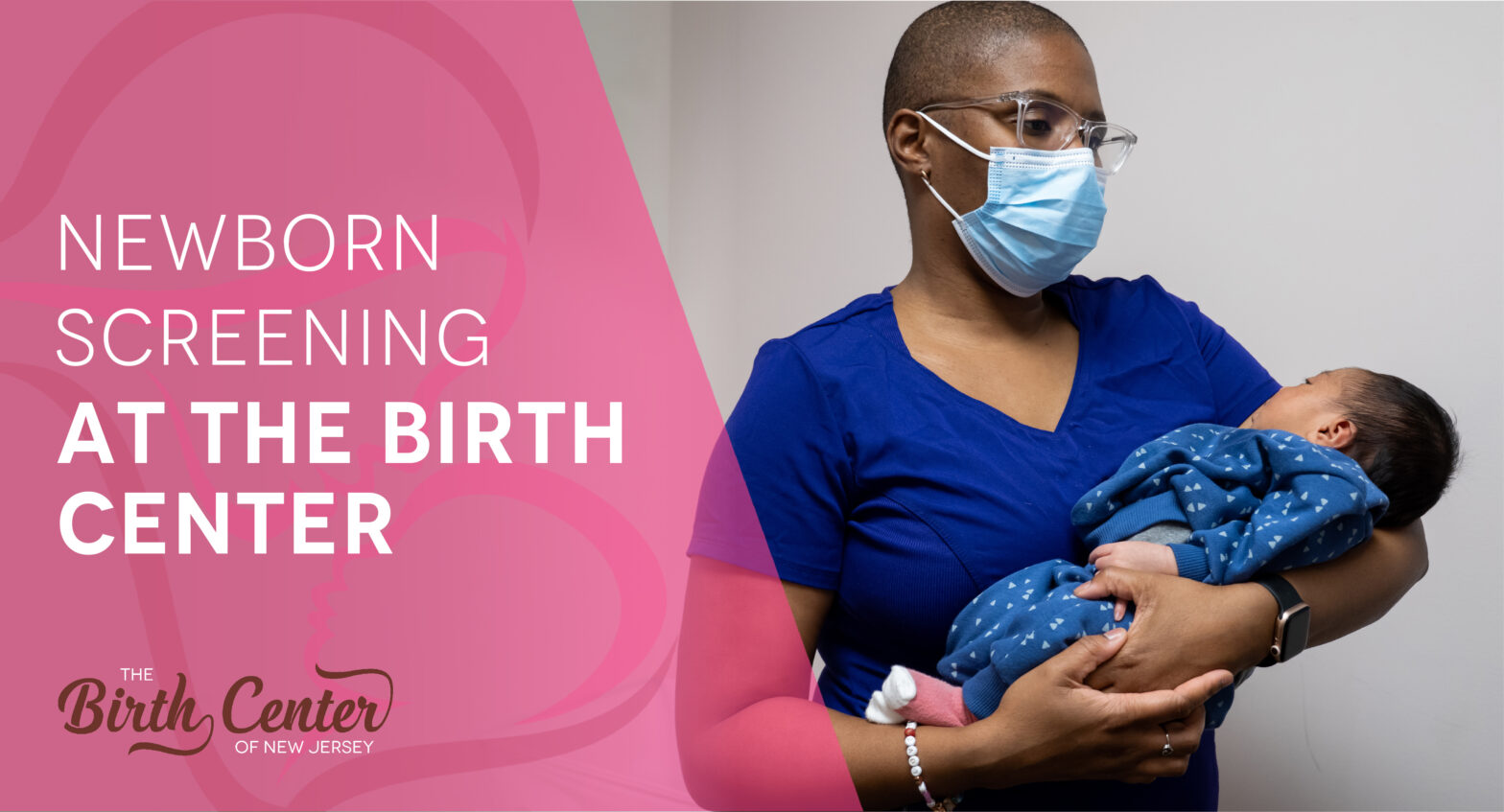Newborn Screening at the Birth Center
All babies born in New Jersey must undergo newborn screenings. Three tests are performed between one and five days of life. These tests are pulse oximetry, hearing disability screening, and metabolic screening. At The Birth Center of New Jersey, we perform them right in the comfort of our center and with the baby in your arms.
1. Hearing screening
Most babies born with a hearing disability do not have a family history of hearing problems. Screening every newborn for hearing problems can help diagnose it early and gives them a better chance to adapt and live with the disability.
When is it done?
The hearing screening test should ideally be performed during the first five weeks of life. Some may wait until three months but the earlier you perform the screening, the better.
How is it done?
The hearing ability screening test for newborns is a non-invasive and quick test called the automated otoacoustic emission (OAE) test.
It is done by placing an earpiece (soft-tipped to not harm your baby) in your baby’s ear. After that, small clicking sounds are played into your baby’s ear.
Then your baby’s response to the test is measured, which determines the test results.
Sometimes it’s not possible to get clear responses from the initial test. It happens with many babies and doesn’t always signify a hearing disability.
It could be due to:
- An unsettled baby
- Presence of background noise
- Your baby’s ears might be blocked temporarily due to an infection or water.
In these cases, your baby will be offered a 2nd test. It may be the same as the 1st test, just performed at another time with more control of the environment.
The AABR, or the Automated Auditory Brainstem Response, is an alternate or advanced test done in case the OAE is non-conclusive.
This test is performed by placing three small sensor devices on your baby’s head and their neck. Gentle clicking sounds are played into a pair of small headphones on your baby’s ears. And similarly, your baby’s response to the sounds is checked.
You get told about the results as soon as the test is done. If the results are positive for a possible hearing disorder, you get referred to an ENT specialist.
2. Pulse oximetry
It is a super simple test that requires placing a probe on your baby’s finger. It tells your baby’s heart rate and oxygen levels within seconds. It helps us rule out any heart defects or breathing problems.
If your baby’s oxygen levels are low despite initial suctioning and supplemental oxygen mask, you may get referred to a hospital for a specialist for further management.
3. Metabolic screening
Metabolic screening is performed by obtaining a few drops of blood by pricking the baby’s heel. These are sent to the lab for testing.
When is it done?
Ideally, the test should be performed when the baby is 24 to 48 hours old and repeated at 14 days.
Which conditions are screened for?
Metabolic screening is done to rule out enzyme deficiencies and other disorders in babies that include:
- Biotinidase deficiency
- Congenital adrenal hyperplasia
- Congenital hypothyroidism
- Galactosemia
- Hemoglobinopathies
- Fatty acid oxidation disorders (FAOD)
- Organic aciduria disorders (OA)
If you have questions regarding these tests and need clarification, please feel free to discuss this during your prenatal appointments.

